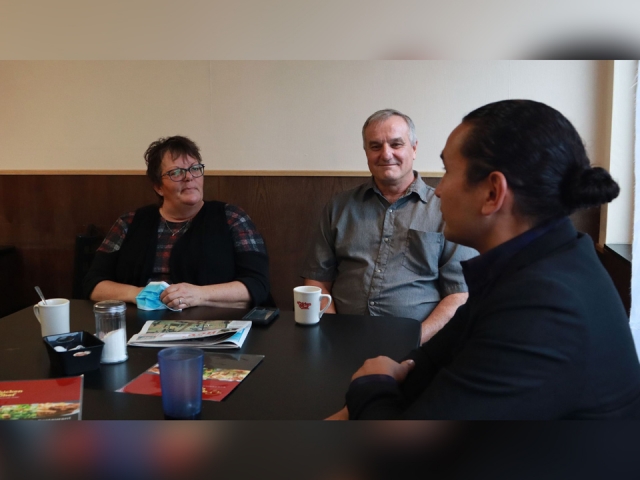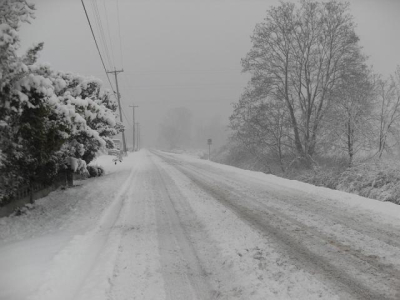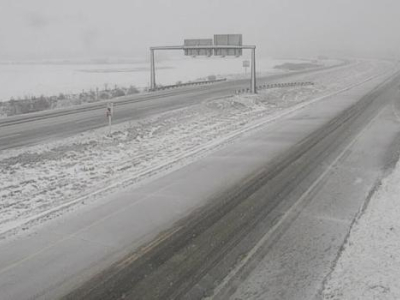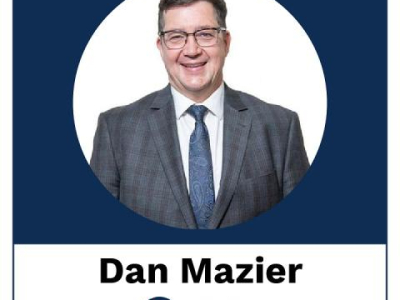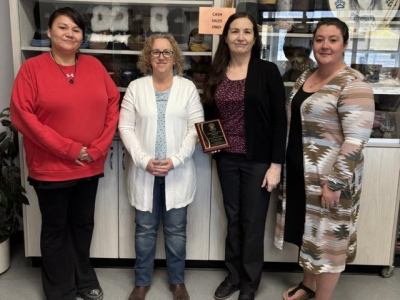In September of this year, Ray Miller drove his wife Karen, who was having a cardiac event, to the Roblin ER, but they found the doors locked when they arrived.
A voice intercom told them to drive to Russell or Grandview for emergency care, a 40-minute drive away.
Ray, caught in a moment of panic, chose to drive towards Yorkton, Saskatchewan instead.
The couple called 911 once within cell service, and an ambulance from Yorkton met them on the highway, where they took Karen to the hospital.
From when the couple left their home, it took an hour and a half for Karen to be admitted to a hospital that wasn't even in her own province.
This was the consequence of the PC's closing the Roblin ER without consulting the communities that surround Roblin.
Yesterday, Kinew visited with the Millers over a cup of coffee to discuss this matter and check in with how Karen and Ray have been doing.
Kinew spoke with CKDM about the visit,
"In spite of what they have gone through, they don't necessarily want to point fingers or assign blame. What Ray and Karen are looking for is some better communication. If the Roblin ER does have to close, to let people in the area know when those closures are going to be, and I think probably the biggest thing is, can we get the staffing necessary just to keep this emergency department open when people need it."
Preaching about how bad of a representation of Manitoba this was, Kinew carried on,
"It's potentially your loved ones life is at stake, and you're being told we can't help you at that this hospital, you got to drive the better part of an hour to go somewhere else. I think any of us would feel very upset by that. Thanks to some quick thinking on behalf of the husband, they actually decided to drive to Saskatchewan for urgent medical care, and I just think that's a shame that people in Manitoba are actually going to another province because the health care system isn't working for them here at home."
Wab says that because of this experience, the Millers have serious doubts in regards to the next time they will need emergency health care.
He outlined some possible solutions,
"The best-case scenario for me is if the investments happen so that we can guarantee everybody access to health care at the Roblin Emergency Department when they need it. And then, of course, if there ever is a situation where there needs to be a closure or something like that, I would hope that Prairie Mountain Health and the government could communicate that clearly to people, because people shouldn't show up on the doorstep of the hospital to be turned away."
Wab added that rural communities need to keep fighting to have their voices heard,
"Folks in the Parkland region, folks in Roblin, Grandview, Dauphin I think have been very good at letting the government know that health care is a priority in rural Manitoba, and I think we really just have to keep the pressure on until these sorts of investments happen."
Lastly, Kinew noted that he hopes the Millers story will open the government's eyes to continue funding and focusing on improving rural health care.

